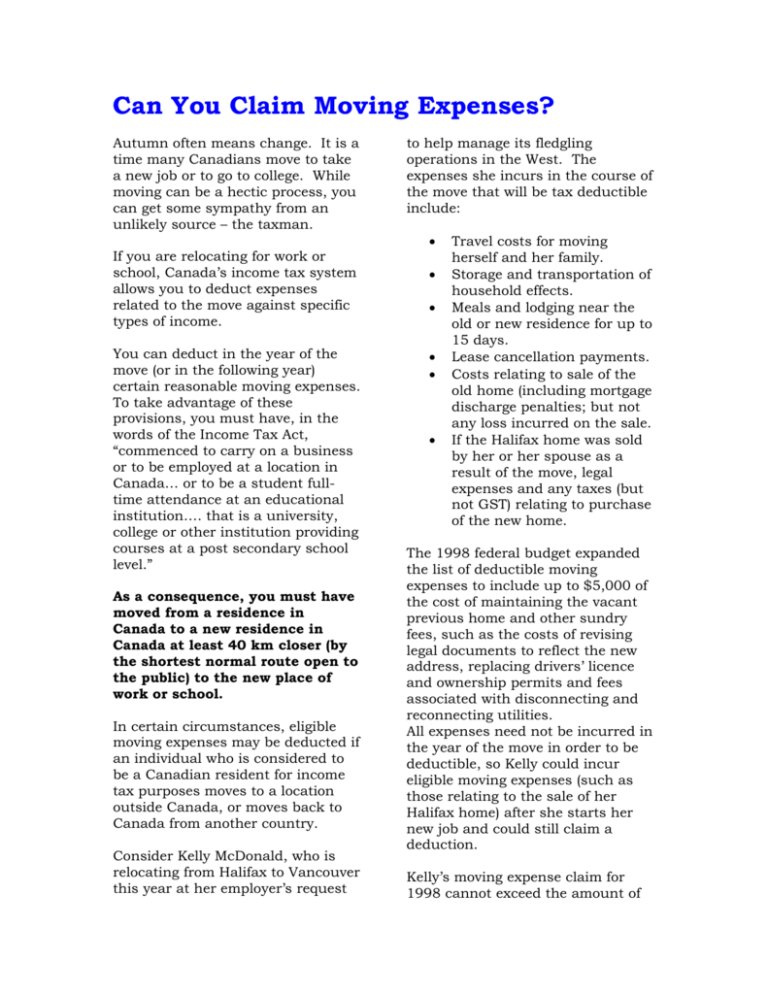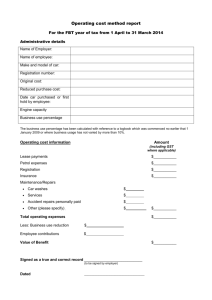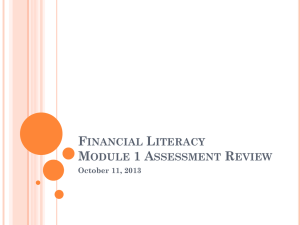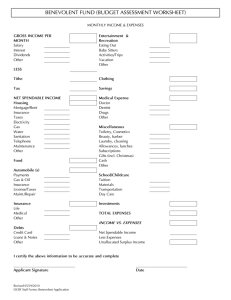Can You Claim Moving Expenses?
advertisement

Can You Claim Moving Expenses? Autumn often means change. It is a time many Canadians move to take a new job or to go to college. While moving can be a hectic process, you can get some sympathy from an unlikely source – the taxman. If you are relocating for work or school, Canada’s income tax system allows you to deduct expenses related to the move against specific types of income. You can deduct in the year of the move (or in the following year) certain reasonable moving expenses. To take advantage of these provisions, you must have, in the words of the Income Tax Act, “commenced to carry on a business or to be employed at a location in Canada… or to be a student fulltime attendance at an educational institution…. that is a university, college or other institution providing courses at a post secondary school level.” As a consequence, you must have moved from a residence in Canada to a new residence in Canada at least 40 km closer (by the shortest normal route open to the public) to the new place of work or school. In certain circumstances, eligible moving expenses may be deducted if an individual who is considered to be a Canadian resident for income tax purposes moves to a location outside Canada, or moves back to Canada from another country. Consider Kelly McDonald, who is relocating from Halifax to Vancouver this year at her employer’s request to help manage its fledgling operations in the West. The expenses she incurs in the course of the move that will be tax deductible include: • • • • • • Travel costs for moving herself and her family. Storage and transportation of household effects. Meals and lodging near the old or new residence for up to 15 days. Lease cancellation payments. Costs relating to sale of the old home (including mortgage discharge penalties; but not any loss incurred on the sale. If the Halifax home was sold by her or her spouse as a result of the move, legal expenses and any taxes (but not GST) relating to purchase of the new home. The 1998 federal budget expanded the list of deductible moving expenses to include up to $5,000 of the cost of maintaining the vacant previous home and other sundry fees, such as the costs of revising legal documents to reflect the new address, replacing drivers’ licence and ownership permits and fees associated with disconnecting and reconnecting utilities. All expenses need not be incurred in the year of the move in order to be deductible, so Kelly could incur eligible moving expenses (such as those relating to the sale of her Halifax home) after she starts her new job and could still claim a deduction. Kelly’s moving expense claim for 1998 cannot exceed the amount of employment income that she earns at her new job in that year. Moving expenses are not deductible against other income, such as investment income, and they can only be claimed to the extent that they have not been paid on her behalf by her employer. If she intends to claim a deduction for moving expenses, Kelly must include in her income any related reimbursements or allowances received from her employer. However, Revenue Canada accepts that certain amounts paid by an employer to reimburse an employee for reasonable relocation costs are not taxable to the employee, even though these would not qualify as tax deductible moving expenses. The cost of house hunting trips to the new location is one example. If Kelly’s employer provides her with a low interest or interest free loan to purchase her new home, an interest benefit calculated at Revenue Canada’s prescribed interest rates must be included in her income. However, for a home relocation loan, the imputed interest on the first $25,000 is tax free for up to five years. With this in mind, if Kelly only receives a fixed amount to compensate her for the move, she should have her employer first reimburse her for reasonable amounts that are not otherwise eligible for deduction as moving expenses, and then for expenditures that are eligible. This way, she can ensure any amounts that are not reimbursed by the employer are at least deductible to her personally. Note, however, that the determination of what constitutes a tax-free relocation reimbursement has been the subject of numerous court cases and interpretations. If Kelly sells her Halifax home for less that she originally paid for it, she could have her employer reimburse her for this loss, as she cannot deduct this cost from her income. In the past, a reimbursement for an employee’s loss on a former residence was not considered to be a taxable benefit. But, under a 1998 budget proposal, an employee now will have to pay tax on one half of any amount in excess of $15,000 paid by the employer after Feb. 23, 1998, for a move that takes place after Sept. 98. For moves made before October, the new rule only applies to payments made after 2000. Kelly should complete Form T1-M (Claim for Moving Expenses) and file it with her 1998 income tax return. While receipts and other documents need not be submitted at that time, careful record keeping is important because Revenue Canada may request support for the claim.






